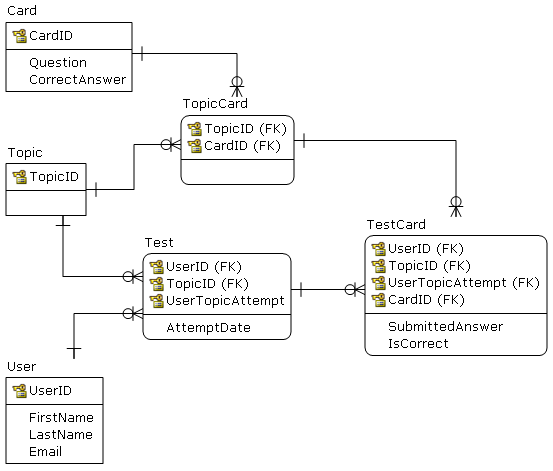I am planning a flashcards app with the following schema:
user(id, name, email)
flashcard_group(id, user_id, group_name, group_tag)
flashcard(id, group_id, question, solution)
guess(id, user_id, flashcard_id, is_correct)
Some of the things I would like to ultimately calculate are:
- The number of times a user guesses a flash card incorrectly and correctly (or a correctness percentage)
- All of a user's flashcards
- All of the user's flashcard groups
- Probably more information about guesses.
Does this seem reasonable? How else could I go about capturing guesses in a logical fashion?

